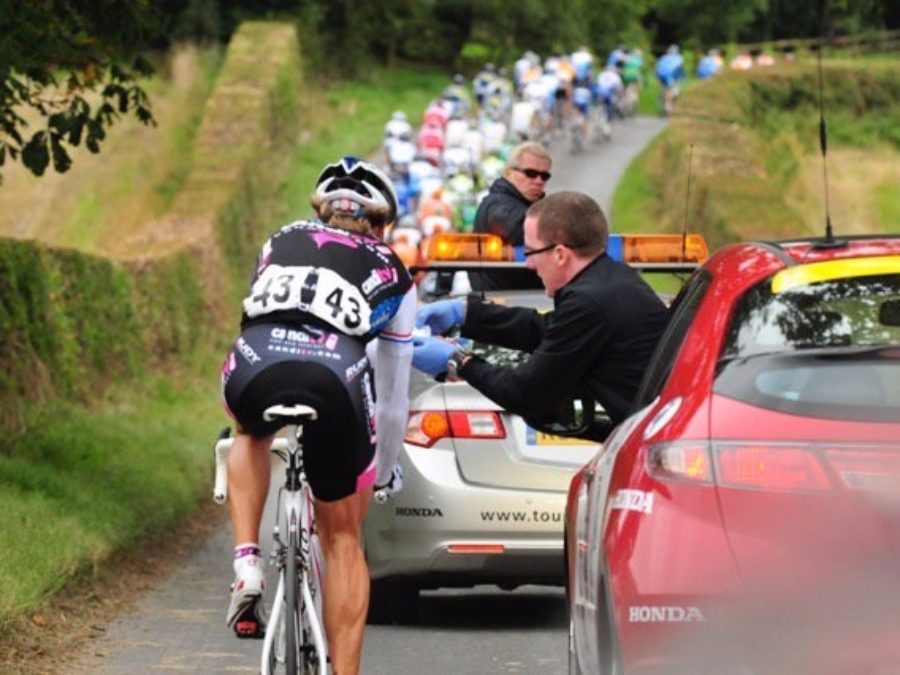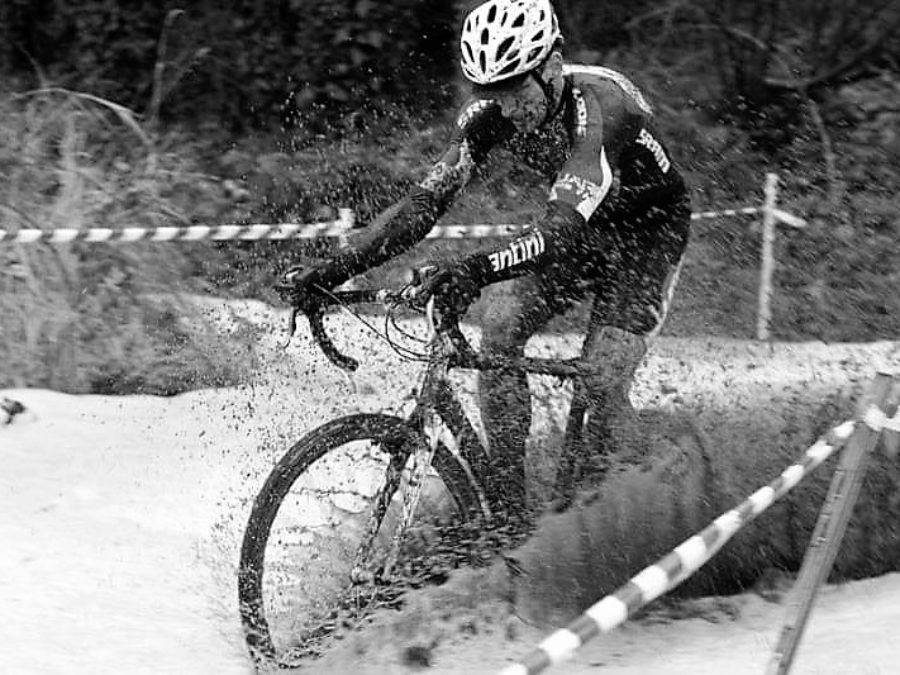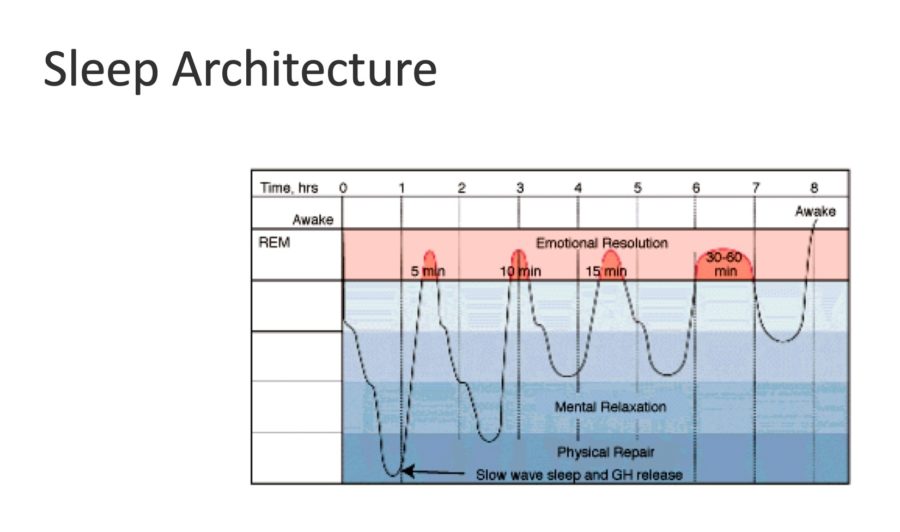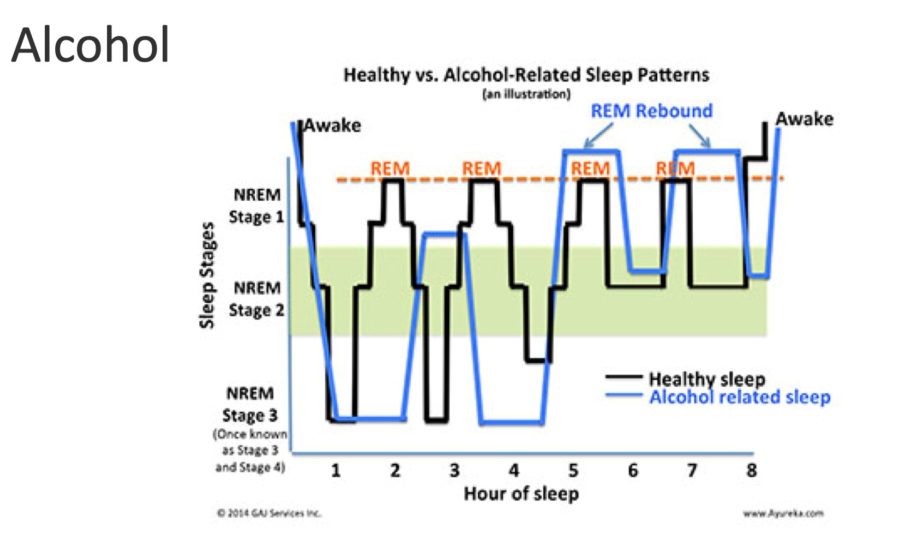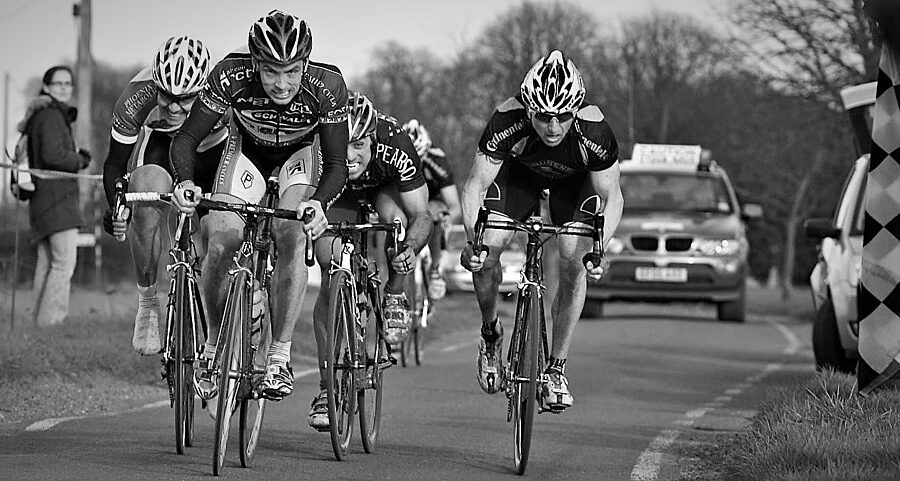"The 80/20 rule – do what you're meant to do 80% of the time – this works for professional and amateur cyclists this time of year"
The Three Ways of Christmas
As we see it there are three essential ways to handle Christmas as an athlete. But don't just take our word for it - we recruit our great friends, Dr Dave Hulse (Team Dr and Sports Physician) and Darren Barclay (Medical Dietitian and Elite Racer) to mark our homework and add their own thoughts.
The Hedonist Approach
Book-ending one end of the spectrum is the hedonist - to let slip the bonds of restraint and simply indulge in every hedonistic opportunity available over the holiday period. Knowing that you can reel it back in with discipline and science once the clock clicks into 2020. The 'fill yer boots' strategy has several advantages:
- Clean and simple - no weighing of food or calculating alcohol units
- No guilt about missed training sessions
- No feeling guilty about being anti-social - family and friends are especially important at this time of year. It is a time to catch up on neglected relationships
- Social benefits of time shared with friends and family when you are not against the clock - has proven mental and physical benefits
- Your body will be totally rested coming into the new season - over training and fatigue can be incremental and insidious forces
- Easily navigable structure - It has a clearly defined end point where behaviour should/must change
But this strategy also has some potential disadvantages:
- Potential weight gain - every 1kg equates to roughly 7,000 calories that you have to burn in January. Let's say that you put on 3kg (21,000 calories) over xmas (easily done) - and now it's 1st January but you only have six hours per week to train properly - it will be a challenge to factor in the extra calorie burn without changing your habitual diet - see our friend and colleague, Darren Barclay's wise words in Early Season Nutrition Tips
- It requires binary discipline in the end-phase - you can't allow mission creep in the new year - 7000 calories per kg remember!
- Some people struggle to submit to hedonism (not me) and letting go in itself causes anxiety and stress
The Ascetic Approach
At the other end of the spectrum is the ascetic approach of maximum discipline and control. Whilst everyone falls apart around you, you stay on the virtuous path of self-restraint. The ascetic route is of course the hardest of all so one would expect, at the very least, that it to be the most rewarded in terms of performance uplift or at least continuity. As a minimum you will should expect some tangible advantages for your absolutist rigour:
- Maintenance of body weight and lean muscle-mass - and arguably relative to the rest of the population you will gain performance
- You should not have a mountain or even a mole-hill to climb in January
- You will stay on top of your 'known knowns' - there is no experimenting with your body here, just FTP business as usual
- Asceticism is as clean and simple as hedonism - they are binary opposites on the yes or no equation
- The athletic body generally likes continuity and dislikes extremes - and as we get older our body's ability to metabolise alcohol and sugars declines
Other than the pain of restraint it is hard to see a downside to maximum moderation? But here are a couple:
- If you are the kind of person that has the self-discipline to contemplate a ascetic xmas, you are probably that rigorous the rest of the year? In which case you are probably more in need of mental and physical rest than almost anyone else. We see a very successful professional rider at this time of year, who makes a virtue of eating whatever he wants for a few weeks. He accepts that he will add on a few kg but also knows it helps his body to heal rest and restore after a hard season of being essentially over-trained and nutritionally deprived.
- The social and psychological aspects of letting go a little and relaxing with friends are well known and scientifically accepted. In theory there is a physical and psychological performance benefit to be had around enjoying yourself and relaxing.
"Asceticism is as clean and simple as hedonism - they are binary opposites on the yes or no equation"
Dr Dave's Third Way - Doctor's Christmas Orders - by Dr David Hulse (Consultant in Sport & Exercise Medicine Team Doctor - Mitchelton-Scott)
Dr Dave is a long-term close friend and colleague at Cyclefit. And multiple contributor to The Midlife Cyclist Lecture Series. We asked him to think about a rational strategy for surviving Christmas as an athlete, using medical science. Here is what he told us:
- The 80/20 rule – do what you're meant to do 80% of the time – this works for professional and amateur cyclists this time of year. The 80/20 rule gives you plenty of ways to slice this particular metric - i.e take two full days off doing whatever you want out of the ten day xmas break. Dr Dave has one serious caveat - that alcohol and training are not happy bed-fellows (below)
- Accept the competing priorities - don't fight them or push your luck. Relax and back off if it will help preserve marital and family relations. Getting stressed about training can raise cortisol levels which in turn can lead to increased appetite, weight-gain and depleted immune system. Staying chilled is better for your soul and for your family and for your performance.
- Psychological benefits of good food, good company, and moderate alcohol. Every human action begins with psychological motivation. The will to train, the commitment to train hard, the will to resist another mince pie or cheat at Cluedo. It is not at all contentious that relaxing with family and good friends and sharing food and moderate alcohol enhances mood and increases productivity and performance. A pure ascetic approach can be counter-productive as it could lead to low mood by being socially isolated. A pure hedonistic will leave you hungover, listless and tired. Dr Dave's third way is the smarter strategy.
One For The Road
Obligate Fuel - The Science
Alcohol (ethanol/EtOH) is a very poor quality fuel source. Alcohol cannot be stored in the human body and is actually a toxin. It has been medically proven that there is a process of obligatory oxidation of ethanol/EtOH - it is quite literally the priority fuel to be metabolized at all costs.
What's Your Posion?
What does all this mean?
It means that the old adage that the first glass does you good and it is all negative after that is largely unsubstantiated by the scientific research. The first and every subsequent glass of ethanol are toxins and will be dealt with on an urgent basis by your body.
There are, quite simply, no intrinsic biological benefits, attached to alcohol. But that still leaves the powerful psychological arguments. And alcohol in moderation can bestow a powerful relaxing and disinhibiting influence upon a group of people. Encouraging conversation, laughter, empathy and emotional warmth and shared experience. These positive emotions are valuable and not to be underestimated.
Things to watch:
- Precisely because alcohol is a proven disinhibitor - it can lead to poor food choices. But you know this now and you can therefore ameliorate its worst effects!
- Alcohol adversely affects sleep patterns and particularly REM sleep. Alcohol can help someone who is healthy to fall asleep faster. But alcohol also inhibits the REM (rapid eye movement) phase of sleep that is known to be the most restorative and beneficial. Normally you enter REM about 90 minutes after you fall asleep and it is the time that you dream the most. Depriving yourself of REM can leave you drowsy or lacking in motivation and focus in the morning. So if you are following the 80/20 strategy do not drink the day before you have a training session planned - it could well make it it unpleasant or completely counter-productive.
REM Rebound
Not a Michael Stipe tribute act - REM Rebound relates to what commonly happens when you go to bed with alcohol on board. You tend to go rapidly into deep sleep -then rather than coming up gradually into REM (dream sleep), you can overshoot and simply wake up. Which is the scientific explanation for lying in bed wide awake at 3am feeling grumpy and fatigued. Hair of the dog anyone?
"What’s the starting point? Are you the kind of person (like me) that routinely comes out of xmas a bit on the heavy side? Are you a hedonist, ascetic or a candidate for Dr Dave's 3rd way?"
Darren Barclay - The Xmas Diet Grinch
How tough should we be on our food choices?
What’s the starting point? Are you the kind of person (like me) that routinely comes out of xmas a bit on the heavy side? Are you a hedonist, ascetic or a candidate for Dr Dave's 3rd way?
Carbohydrates - Poison or Panacea?
Normally carbohydrates are the cornerstone for performance - add in a bit of protein and fat to hit ideal nutritional balance. For many of us at Christmas it’s just a different story - we are not having low fat food choices so our reliance on fat and sugar often goes up.
A suggested Christmas carb/protein/fat algorithm
Where normally, on an optimal sports diet we could be running below 25% fat per day, or lower - if we presume your weight is in balance and activity output is constant. If you’re fat percentage for example shoots up over 35% / 50% for a few days at xmas, carbs and to some extent protein need also to shift down. Remember it is often, practically easier to notch down the carbohydrates.
So one strategy is to shift down the focus on carbohydrates; avoid the juices, minimize cereals, breads (this often comes with a butter or margarine too - an easy 200kcal trimmed back), trim back the potatoes, breadsticks. You have the idea. Enjoy your sugars and fats but trim back the rest - easy!
It's all about carbs
A bit more detail on the carbohydrates. Roughly speaking you need 4-5g carbohydrate per kilogram body weight per day baseline and then your activity demands on top. I weigh pre-Christmas, 74kg, so I target 300-375g carbohydrates baseline when not exercising.
Riding
Getting out on the bike for a few hours burns a few calories, but not as much as we think. In food terms it may not even be a mince pie in terms of fat oxidation. We still have to consider the food we are consuming. Unless of course you are managing 3-hour plus rides per day? I have enclosed a list below of how long it takes to burn our favourite xmas treats.
The S-word - Structure
This can go out of the window at xmas - and it’s easy for our routine to change radically. We are likely to rest more (a good thing - see Phil and Dave's comments above). But even getting out on the bike for a few hours may only just about offset our usual daily energy expenditures, such as: running for the tube, bus, commute, 2km up and down stairs etc. etc.
When our usual structure goes our eating habits often follow. We may graze more or our eating habits become a bit more erratic.
Turbo in your PJ's?
Getting up out of bed and straight into the training kit helps, and almost gives our metabolism a wee nudge. Even a quick 15- 20 minutes ride / turbo session / run can be a kick start to the day - this can be done without eating to help out a bit with fat oxidation or detoxifying. We may then be more likely to go with some healthy choices on the breakfast front and get set up for the day.
Calories
A word on calories - 7500kcal is equal to a kilogram in weight. Keep in mind over Xmas it is possible to gain 2.5kg (equal to 18,7500kcal) or more. Just being slightly mindful and trimming down the portions, one or two canapes rather than 3 or 4 or one less drink or an alcohol swap with a mineral water etc etc.
Food swaps
Suggestions are in the mainstream and they work. Switch some foods to low fat choices for example low fat soft cheese, low fat crème fraiche, low fat dips, ditch the high fat spreads where possible.
Or reduce the portions
Don’t food watch or calorie watch. Just portion control. Just have less.
Under compensate
Damage limitation approach. Do we need breakfast, Xmas dinner, cheese platters and 3 snacks in one day? Perhaps trim back the breakfast and snack and have a lean-day on the calorie front a day or a few days before, and the same approach on boxing day? It is relatively painless to offset a couple of thousand calories this way.
This strategy is often suitable in short term but not an answer to long-term good nutrition.
Happy Christmas everyone. But not too happy eh?
Darren Barclay - Medical Dietitian at Form
Darren's Xmas Treat Grinchery
-
Mince Pie
20 Minutes - cycling required at ~ 200watts
-
375mls Red Wine
30 Minutes - cycling required at ~ 200watts
-
4 x Roast Potatoes
30 Minutes - cycling required at ~ 200watts
-
1 Pint of Beer
15 Minutes - cycling required at ~ 200watts
-
3 oz Brie
30 Minutes - cycling required at ~ 200watts
-
5 x Crackers
15 Minutes - - cycling required at ~ 200watts
-
1 x Packet of Crips
12 Minutes - - cycling required at ~ 200watts
-
1 x Slice of Xmas Cake
30 Minutes - cycling required at ~ 200watts
-
Christmas Pudding Slice
30 Minutes - cycling required at ~ 200watts
-
Christmas Pudding
30 Minutes - cycling required at ~ 200watts
-
Portion of Pork Pie
25 Minutes - cycling required at ~ 200watts
-
2 x Ice-Cream Scoops
35 Minutes!!! - cycling required at ~ 200watts
-
1 x Slice of Quiche
30 Minutes - cycling required at ~ 200watts
-
6 x Chocolates
30 Minutes - cycling required at ~ 200watts


